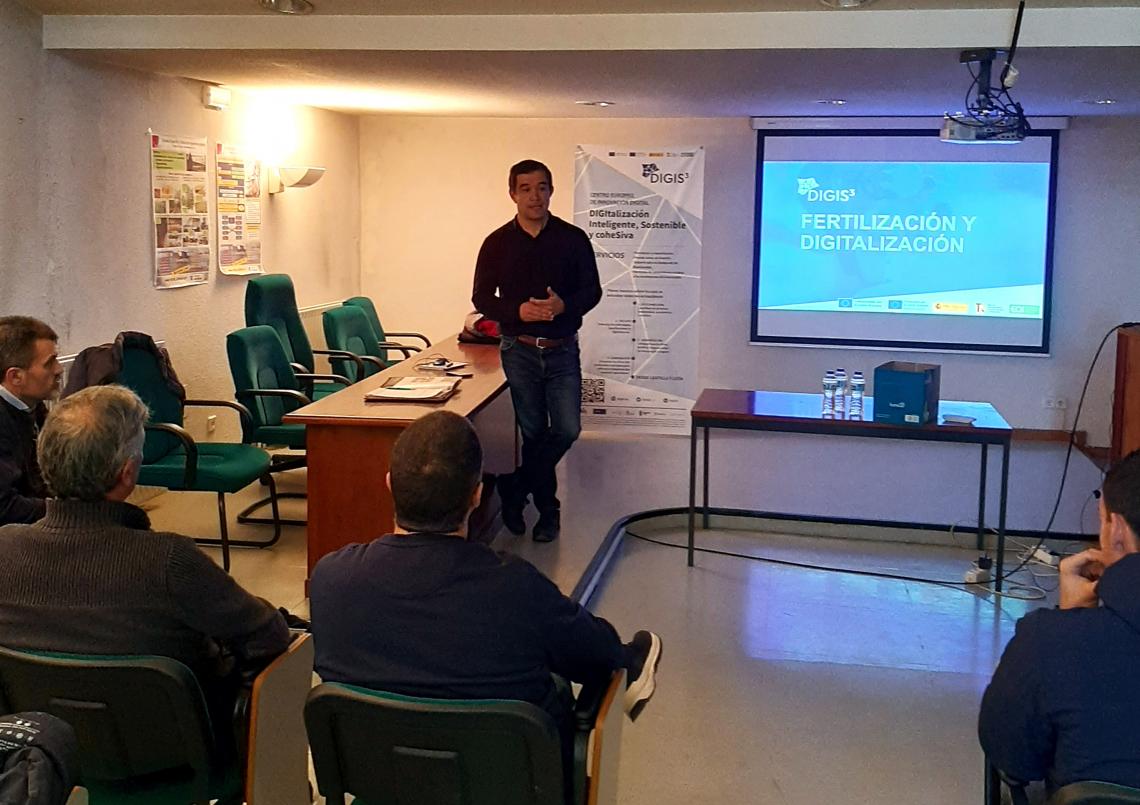Researchers from the MECAS Research Group (Agricultural Mechanisation and Sustainable Agronomy) of the University of León gave a demo of the implementation of precision agriculture which enables better control over the dose of nitrogen applied to crops, in areas vulnerable to nitrates. The event took place last Thursday at the School of Agricultural and Forestry Engineering, framework of the DIGIS3 project. The demo focused on the operation of a system that is particularly suitable for high yielding irrigation areas.

During the session, researchers from the MECAS Group presented to a group of agricultural entrepreneurs an innovative system for variable dosing of nitrogen fertilisation by means of real-time detection of the Vegetation Index. Victoriano Marcelo Gabella, coordinator of the group, explained that this index is detected by infrared sensors mounted in the tractor cab, which send the signal to an electronic unit that controls the dosage of the fertiliser spreader. The system not only monitors the vegetation index in real time, but also maps this index and the fertiliser applied as it moves across the plot, providing data for subsequent analysis.
The event included classroom/laboratory explanations of mechanisation, followed by a practical demonstration at the EIAF facilities with the available machinery. During this demonstration, the assembly of the equipment, its adjustment and handling was detailed, and its operation was demonstrated on a plot of the School's practice field. The content of the session covered topics such as fertilisation, real-time crop monitoring systems and highlighted the Cropspec system of the Topcon company.

The MECAS Research Group of the University of León is among the 14 research groups of the ULE that are part of the DIGIS3 HUB. This consortium, made up of six entities from Castilla y León, including the ULE, IoT-DIH (AIR Institute), DIHBU, DIH-LEAF, SCAYLE and the Institute for Business Competitiveness of Castilla y León (ICE), has as its main objective the promotion of smart, sustainable and cohesive digital transformation of small and medium-sized enterprises and public administrations in the region. This meeting between research and the business sector underlines the commitment of DIGIS3 to promote the practical application of advanced technologies to improve efficiency and sustainability in the agricultural sector.